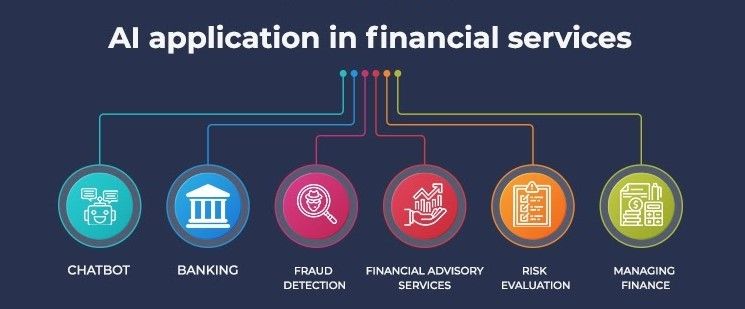The Impact Of Taxes On ETF Returns: What You Need To Know

Introduction
When it comes to investing in exchange-traded funds (ETFs), many investors focus solely on performance and expense ratios. However, one crucial aspect that often goes unnoticed is the impact of taxes on ETF returns. Whether you are a seasoned investor or just beginning your financial journey, understanding how taxes can eat into your ETF returns is vital. In this blog post, we will delve into the world of ETF tax implications, exploring various types of taxes and strategies to minimize their impact. So, buckle up as we unveil the hidden tax bill and equip you with the knowledge you need to optimize your ETF returns.
Understanding Taxes on ETF Returns
ETFs, similar to mutual funds, are subject to taxes due to their underlying investments. These taxes can impact your investment returns and, ultimately, your wealth accumulation. To comprehend the overall impact, let's explore some of the specific types of taxes that affect ETF investors.
Types of Taxes on ETFs
3.1 Capital Gains Taxes
Capital gains taxes are levied on the profits earned from selling ETF shares. When an investor sells their ETF shares at a higher price than their purchase price, they realize a capital gain. The capital gain can be classified as either short-term or long-term, depending on the holding period.
Short-term capital gains occur when the holding period is less than one year. These gains are taxed at ordinary income tax rates, which can be significantly higher than long-term capital gains rates. On the other hand, long-term capital gains apply when the holding period exceeds one year. Long-term capital gains rates can be more favorable, encouraging investors to maintain a longer-term investment horizon.
3.2 Dividend Taxes
ETFs often distribute dividends to their shareholders, which are taxable. These dividends can include qualified dividends, which are subject to preferential tax rates, or non-qualified dividends, which are taxed at ordinary income tax rates. Understanding the tax treatment of dividends is crucial for investors to accurately assess their potential tax liability on ETF holdings.
3.3 Expense Ratio and Tax Efficiency
The expense ratio of an ETF includes the costs associated with managing the fund, including administrative fees and operational expenses. These fees are generally deducted from the fund's assets, potentially reducing the fund's overall returns. However, some ETFs are more tax-efficient than others, aiming to minimize taxable events and distributions, which can reduce the investor's tax liability.
Factors Influencing Taxes on ETF Returns
Understanding the factors that influence the taxes on ETF returns can help investors make informed decisions while managing and optimizing their portfolios. Let's explore some of the key factors that can impact taxes on ETF returns.
4.1 Turnover Rate
The turnover rate of an ETF indicates how frequently the fund's holdings change. ETFs with high turnover rates may realize more capital gains due to the frequent buying and selling of securities. Higher turnover rates can lead to increased tax liabilities for investors in the form of potential capital gains taxes when the ETF realizes profits from its trades.
4.2 Dividend Yield
The dividend yield of an ETF indicates the income generated by the fund's holdings in the form of dividends. High dividend-yielding ETFs can be attractive to investors seeking regular income. However, it's essential to consider the tax implications of these dividends as they may be subject to higher tax rates compared to capital gains.
4.3 Holding Period
The length of time an investor holds an ETF can significantly impact their tax liability. As mentioned earlier, short-term capital gains are taxed at ordinary income tax rates, which can be much higher than long-term capital gains rates. Thus, holding an ETF for an extended period can prove more advantageous from a tax perspective.
Strategies to Minimize Taxes on ETF Returns
Now that we understand the various types of taxes and the factors affecting them, let's explore some strategies to minimize the tax impact on ETF returns.
5.1 Tax-Loss Harvesting
Tax-loss harvesting involves strategically selling investments that have experienced a decline in value to offset capital gains realized from other investments. Investors can reduce their total tax liability when they realize losses. However, it's crucial to navigate the complex rules and regulations surrounding tax-loss harvesting to avoid potential pitfalls.
5.2 Asset Location
Asset location refers to the placement of different types of investments across taxable and tax-advantaged accounts strategically. Allocating higher-taxed investments to tax-advantaged accounts and tax-efficient investments to taxable accounts can help minimize the tax consequences and optimize overall portfolio returns.
5.3 Investing in Tax-Efficient ETFs
Choosing tax-efficient ETFs can have a significant impact on an investor's tax liability. Tax-efficient ETFs are designed to minimize taxable events, resulting in reduced capital gains distributions. Investors can research and select ETFs with low turnover rates, low dividend yields, and high tax efficiency scores to maximize their after-tax returns.
End Line
As investors, we often focus on the performance and expenses associated with ETFs. However, understanding the impact of taxes on ETF returns is equally crucial for achieving financial goals. By comprehending the various types of taxes, and factors influencing taxes on ETF returns, and implementing strategic tax-saving strategies, investors can make informed decisions to optimize their after-tax returns. So, take the initiative to explore tax considerations, consult with a financial advisor if necessary, and ensure you are utilizing every opportunity to minimize the hidden tax bill and maximize your wealth accumulation.
At Invoice Temple, we strive to provide valuable insights and resources to help investors make informed decisions. Check out our website for more informative articles and guidance on navigating the world of investing.
Note: The key to lasting financial success is informed investing.
Also Read...




